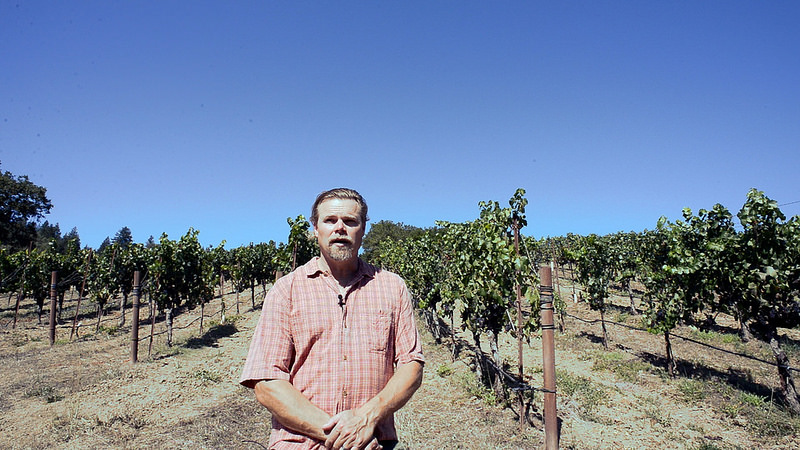
Porter Creek was founded in 1977 by George Davis when he bought a 40-acre parcel in the Russian River Valley, Sonoma County. In 1997, Davis handed the reigns over to his son Alex who had completed an oenology degree at Fresno State and had worked in France under Christophe Roumier, Marcel Guigal and Bernard Michelot.
All Porter Creek's vineyards are situated on hillsides, and in 2003 Alex Davis instituted Biodynamic practices. We talk to Alex Davis about his use of Biodynamic principals in his winemaking and how it impacts his wine.
What is your philosophy of winemaking?
Our winemaking process is extremely simple I have tried very hard to get back to the principals of how wines were made about 100 years ago or even hundreds of years ago in Europe. In other words very little additions. I do use a little bit of sulpher but I try really hard to pick when the natural acidity is good so I don't have to add grape acid back so that the grapes are at the perfect balance point or within the range of balance points that I like to work with so I don't have do manipulations in the cellar.
Starting around 2000 we stopped all synthetic chemical use. Just using sulphur and hand working the weeds under the vines and then around 2003 we got interested in Biodynamics. A lot of the interest in Biodynamics is based on the idea that a grape vine is not supposed to be grown in the vineyard, it is supposed to be in nature in the forest climbing trees so that it can get to the top of the trees and the birds can spread the seeds and grow based on ambient rainfall and the mulching of the trees and things. Now in a vineyard that is never going to happen but we can get a little bit closer to that by maintaining the fertility of the soil floor here. Using compost that emulates the mulching of the tree leaves in the vineyard instead of bringing in synthetic chemicals. We do have to water here but we do it on a minimal level.
How has your wine changed since you became Biodynamic? Is there a noticeable difference?
It is hard to put your finger on it absolutely, but it is along the lines of old vines giving more complex wines. Wines that are grown with minimal inputs give an extra level of complexity and nuance. It is not that it has more color or more flavor. It is more I like that the definition of flavors is getting deeper.
How did your experience working in France impact you as a winemaker?
After studying in California the experience of studying France was very influential on my whole philosophical angle. The idea of making wine with very little products added to it, the idea of making wine as it was made 100, 200 or 500 years ago made a lot of sense to me. It was kind of taught to us in California school that you need to make very text book wines, which means that if the PH is not a certain level you have to add some level and using a lot of charts and formulas. Whereas what I saw in France it is more of a farmers intuition where you have experience you do it year after year and you see the way things evolve and you have quite an intuition. It is great to have the scientific training, but I think the best thing you can do with the scientific training is park it in the back of your brain and pull it out when you need it. It is nice to have a tool box but it is a whole lot better not to have to use it.














